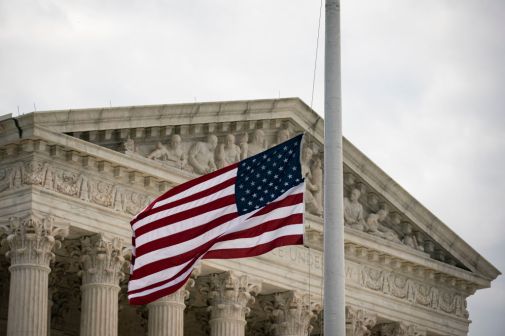Will Trump’s decision to elevate Cyber Command be a boon for defense contractors?

With President Donald Trump’s move to elevate U.S. Cyber Command to a unified combatant command, the Fort Meade-based outfit is on track for additional funding dollars and a bump in acquisition authorities, which experts believe will translate into the development of new programs and therefore more opportunities for private defense contractors.
Cyber Command has been adequately funded in the past, explained Michael Sulmeyer, a former senior Pentagon official during the Obama administration, but the combatant command designation and continued maturation of the organization will give it an “equal seat at the table” to vie for future funding dollars and pursue innovative technologies.
“I think it’s interesting that Trump’s statement mentioned funding, because I am not aware of any budgetary shortfalls faced by the cyber mission. Cyber Command will continue to receive the resources it needs,” Sulmeyer said. “The Defense Department knows how important this is and has for a long time.”
Contractors play an important role in the creation of defensive and offensive cyber capabilities because the technology is notoriously difficult to engineer and inherently expensive — a situation that has pushed creators toward private sector employment to reap the rewards.
Internally, Cyber Command’s nascent Capabilities Development Group is spearheading its acquisition effort and other custom projects. The group has its first industry day planned for October.
In July, while rumors of elevation swirled but the move wasn’t yet official, Congress granted $75 million in additional acquisition powers to Cyber Command for “emergent capabilities through agile acquisition,” explained Maj. Gen. Ed Wilson, acting deputy assistant secretary of Defense for cyber policy and deputy principal cyber adviser to Defense Secretary James Mattis.
“We want to get [them] some experience there and then in 18-24 months we’ll take a look within the department, to see how they got on” and decide whether more additional authorities are needed, Wilson said.
Bill Leigher, head of Raytheon’s business development strategy for Cyber Command, told CyberScoop that he saw Trump’s decision to elevate Cyber Command as a sensible move based on the growth and importance of the command’s work in relation to the Defense Department’s broader cybersecurity mission.
Although elevation has been expected for some time, said Leigher, it’s less clear when Cyber Command will be fully separated from its neighbor and partner in the NSA. Cyber Command is led by NSA Director Adm. Mike Rogers. While in that dual-hat role, he has consistently advocated for elevating Cyber Command.
Former U.S. intelligence officials tell CyberScoop that Cyber Command relies heavily today on the NSA’s expertise, talent and occasionally, the spy agency’s visibility into specific online targets. While the organization has made significant strides, the path or timeline to total independence isn’t clear right now.
One former U.S. intelligence official, who spoke on condition of anonymity to broadly discuss their time in service, said that contractors would be “extremely necessary” if separation were to occur in the near future because of the “incredibly obvious” capabilities gap that exists at the moment between NSA and Cyber Command.
Leigher, a former Navy deputy commander for U.S. Fleet Cyber Command, said the new designation won’t necessarily lead to an immediate spike in funding dollars or acquisitions powers, but it will certainly help support the idea that the five major development contracts involving Cyber Command — and which are already widely known to the industry — will be fully executed. These contracts to help train and equip personnel are not solely focused on Forte Meade, but rather include multiple branches of the U.S. armed forces.
Only two of those projects are nearly finished and have been bid on by contractors: the “persistence cyber training environment” and “national cyber training range,” both of which are focused on preparing teams to effectively defend U.S. networks and hack into adversary computer systems. The development of these two program is worth between $500 million and $750 million, said Leigher. The other three projects — which includes the continued development of an integrated and unified platform — is not yet completed.
Asked whether the rise, and prospective separation, of Cyber Command represents an actionable business opportunity for Raytheon, Leigher was hesitant to outline any specific expectations. It’s “too soon to say,” Leigher concluded.
The elevation of Cyber Command means that it is only the 10th such organization with the operational authority to conduct military operations abroad under the purview of the secretary of Defense and the White House.
Prior to last week’s announcement by the White House, Cyber Command operated under the guidance of U.S. Strategic Command. The news prompted an immediate shift in Cyber Command’s authority to conduct missions; as it now operates directly through the Pentagon and White House for approval.




